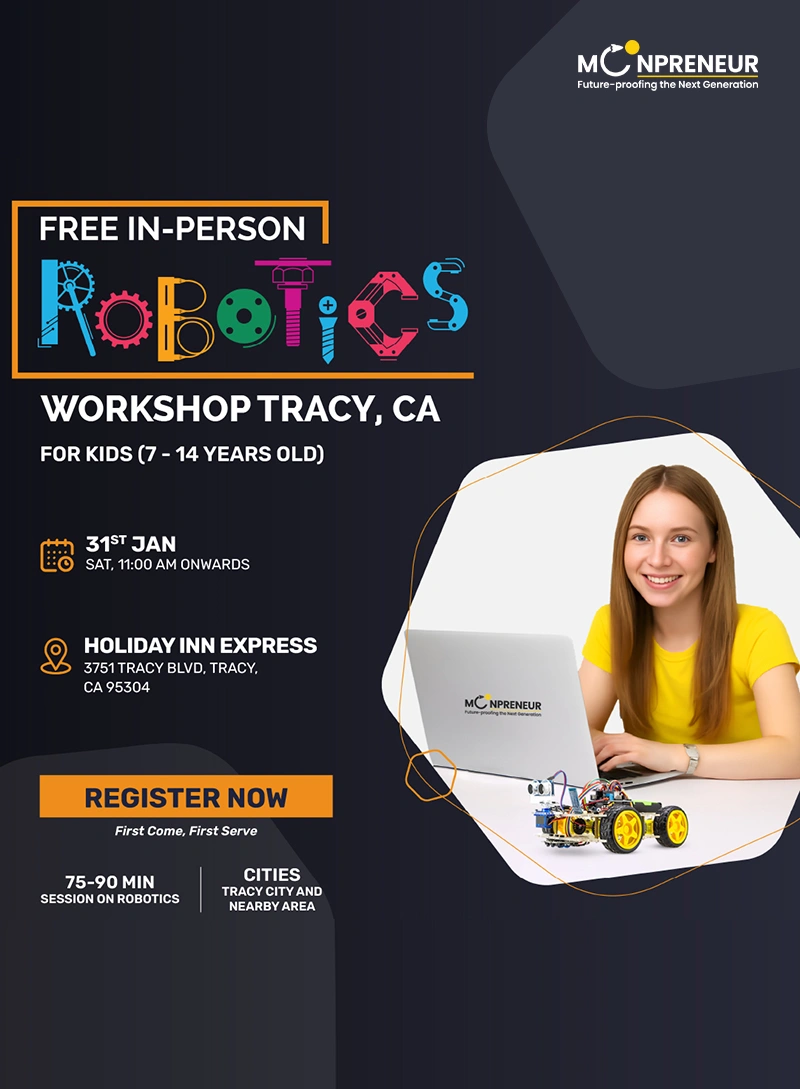Not all education is pricey. If you strongly desire to learn but cannot afford expensive tuition, consider free community schools, which provide two-year associate degree programs free to qualified students.
According to a Forbes article, President Joe Biden advocated making community college free nationwide, but the idea was unsuccessful. However, a few states now provide with some students with free college tuition at two-year institutions.
Out of the 50 states, more than half provide some type of free community college for students.
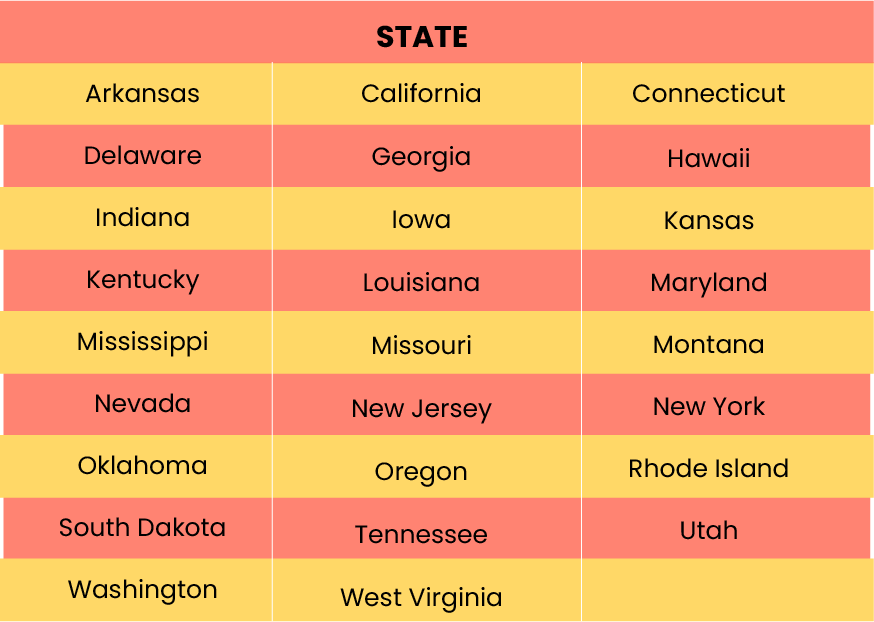
For individuals who cannot pay tuition costs, this is a relief.
The Morning Consult 2022 report, which shows that more than 3 in 4 Americans feel college is difficult to pay, tells us about the affordability of higher education.
The average yearly tuition at a public, in-state college is $10,000, and between 2009 and 2015, the average student loan debt for Americans increased by more than $5,500.
According to US News data, the average tuition and fees for in-state students at ranked public colleges in 2022-2023 were $10,423, which is 74% less than the average sticker price of $39,723 at private colleges. Out-of-state students paid an average of $22,953 for the same year at public colleges.
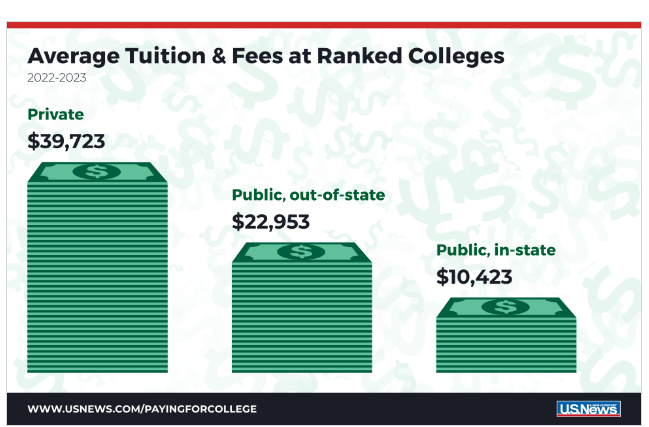
Source: usnews.com
The specific eligibility criteria and funding mechanisms for free community college programs can vary from one state or locality to another. Typically, these programs target recent high school graduates, adults looking to further their education or change careers, and individuals seeking specific job training or certification.
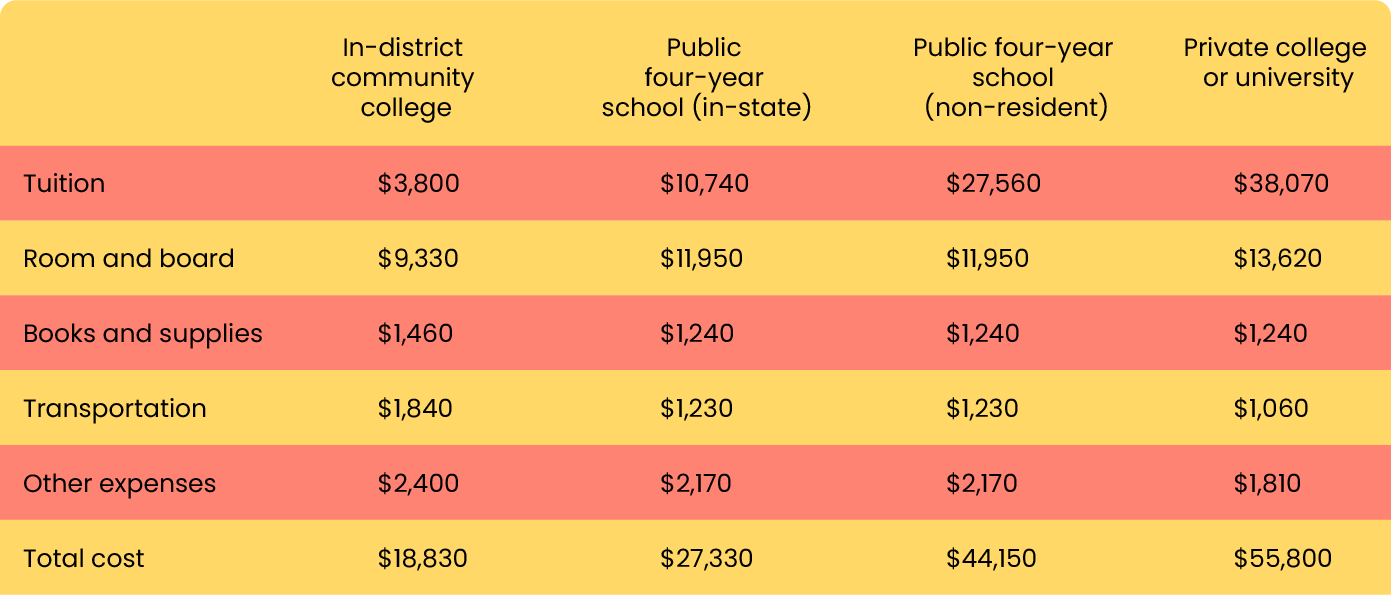
If money is tight and you can’t find a place at a free community college, you could attempt the following to fulfill your higher education dreams:
Federal Financial Aid (FAFSA)
For financial aid for college, apply for the Free Application for Federal Student Aid (FAFSA). Federal funds like the Pell Grant and the Federal Supplemental Educational Opportunity Grant (FSEOG) may be available to community college students. These awards are often given based on financial necessity and do not require a return.
Federal student loans are available to aid in paying for tuition, including Direct Subsidized and Unsubsidized Loans. Loans come with repayment obligations, but they frequently have better terms than private loans.
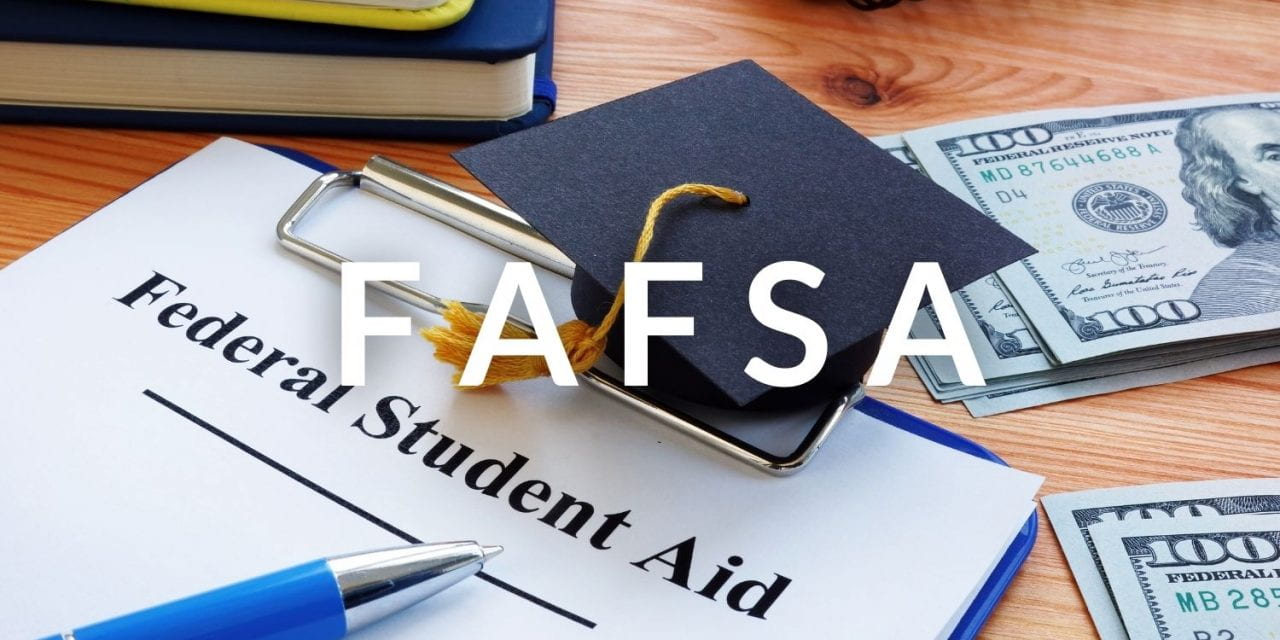
State Financial Aid Programme
Many states provide financial aid schemes designed especially for community college students. These initiatives might offer grants, scholarships, and financial aid for tuition.
State-specific eligibility requirements might be based on things like residency, academic success, and financial necessity. To find out about state-specific financial aid programs, contact the higher education authority or financial aid office in your state.
Grants and Scholarships
Private institutions, foundations, and community colleges offer several grants and scholarships. These may be given based on various factors, such as academic excellence, involvement in the community, topic of study, or unique abilities. It’s important to look for and apply for grants and scholarships that fit with your qualifications and interests.
You can find scholarships on websites like Fastweb, Scholarship.com, and the College Board Scholarship Search.
Part-Time Work and Work-Study Programs
Many community college students take up part-time jobs to help cover their educational expenses. Some colleges also participate in Federal Work-Study programs, which provide part-time employment opportunities on or off-campus for eligible students with financial need. These jobs can help you earn money to pay for tuition and other educational costs while gaining work experience.
In addition to these, some students may look into additional strategies like employer tuition reimbursement (if they already have a job), educational tax credits, or, as a last resort, low-interest private student loans.
It’s crucial to approach community college financing with a well-thought-out plan, taking into account your unique situation, available funds, and long-term educational objectives. A financial aid advisor at your community college can also offer helpful direction and assistance as you navigate the various financial aid options that are open to you.
Substitutes for Community College
If you are a passionate learner, Community College are not the only option. Other possibilities won’t cost as much as a four-year college or university to help you further your education or start your profession.
Online College
There are numerous online possibilities, whether you desire to pursue a two-year or four-year degree. Online colleges, like community colleges, typically cost less and have more flexible schedules. Since there is a growing demand for online education, many prestigious schools now provide degree programs online, allowing you to acquire your degree from a top university without moving.
Apprenticeship
Finding a professional to shadow while they deliver instruction in real-time is normal for an apprenticeship. Numerous sectors, including energy, telecom, transportation, and health care, offer apprenticeship programs. Over 636,000 apprentices work in the US, where their average beginning pay is $72,000 when they complete their training.
Source: https://www.coursera.org/articles/what-is-a-community-college
Professional Certificates
A professional certificate can assist you in gaining job-ready skills to enter a new field of work—or advance in your existing position—as the demand for skilled labor in specific industries, such as tech, finance, and business, continues to rise. Many certificate programs are made to last less than a year, and they can improve your resume by demonstrating to potential employers that you have completed specialized training.
Moonpreneur is dedicated to transforming conventional education, preparing the next generation with comprehensive learning experiences. Our Innovator Program equips students with vital skills in AI/ML, Robotics, Coding, Game Development, and App Development, fostering entrepreneurship through hands-on learning. This initiative aims to cultivate the workforce of tomorrow by integrating innovative technologies and practical skills in school curriculums.
Register for a 60-minute free workshop today!











